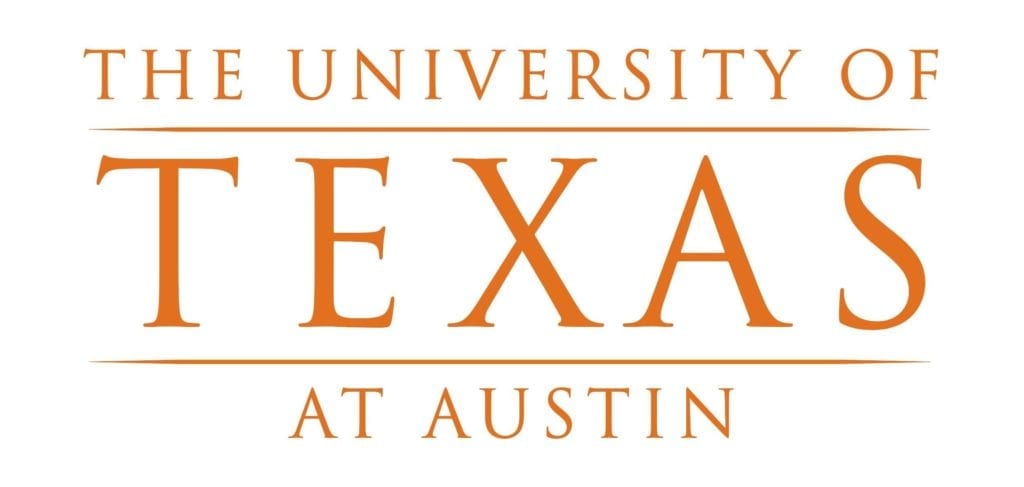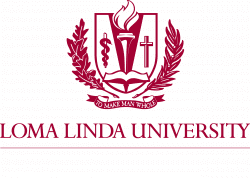
Key Takeaways:
- University of Texas at Austin and Rutgers University offer leading online/hybrid master’s programs in Radiation Sciences.
- Programs typically require clinical experience and may have a residency requirement.
- These master’s programs are accredited by agencies such as JRCERT and CAMPEP, ensuring quality education.
- Graduates from these programs are prepared for advanced roles in health physics, radiology technology, and medical physics.
We live in a remarkable time with regards to medical advancement and technology. That advancement is front and center in Radiation Sciences. Advances in X-rays, diagnostic scanners, and treatment modalities are constant. An online radiation sciences master’s will advance your technical ability and skill as well as your career.
Best Health Degrees researched schools offering online/hybrid programs in Radiation Sciences and that are eligible to offer federal financial aid. You’ll need to complete the Free Application for Federal Student Aid (FAFSA) to determine eligibility. The programs in this ranking are all accredited by Department of Education agencies such as The Joint Review Committee on Education in Radiologic Technology (JRCERT), the Commission on Accreditation of Medical Physics Education Programs (CAMPEP), or regional agencies such as the Higher Learning Commission (HLC).
Our Method: Ranking the 10 Best Online Radiation Sciences Master’s Programs
To rank the 10 Best Online Radiation Sciences Master’s Programs, Best Degrees editors researched accredited, trusted programs of all kinds. From our initial pool, we ranked programs according to price, accreditation, reputation, and salary potential, using data from IPEDS and Niche, U.S. News and World Report, and other higher education rating publications.
1. University of Texas at Austin

You can earn your Master’s in Mechanical Engineering with a Health Physics concentration, through this hybrid online radiation sciences master’s program from UT-Austin’s Cockerall School of Engineering.
Among the courses you’ll take are studies in Radiation Shielding, Radiation Biology, Nuclear Health Physics, Nuclear and Radiochemistry, Radioactive Waste Management, Reactor Theory, as well as an Independent Study. The program gives you the option of writing either a thesis or a report. There is a two-week residency requirement in Health Physics Instrumentation conducted on the UT-Austin campus. Usually, students take only one course per term. The program requires 36 credit hours of coursework.
Admission requires you to hold a bachelor’s degree in the physical sciences (physics, chemistry, etc.) with a 3.0 GPA in the junior and senior years. Letters of recommendation are required and GRE test scores (the GRE criteria is suspended for the 2021 academic cycle).
Estimated Tuition Cost: $11,998-$22,966/per credit hour
Fast Fact: UT-Austin is ranked #12 by U.S. News and World Report in its Best Graduate Mechanical Engineering Programs
Learn more about the online radiation sciences program!
2. Rutgers University

If you are currently certified by the AART and have a baccalaureate degree, this online/part-time graduate program may be for you. This is the only M.S. in Radiology Technology online/hybrid degree offered in New Jersey that holds AART accreditation.
The online radiation sciences master’s curriculum requires 46 credit hours of didactic and practical experience. Among the coursework you’ll take are classes in Pathophysiology for Radiology Assistants, Advanced Patient Care and Pharmacology, Patient Assessment, Management and Education, Roles and Responsibilities in RAD. Procedures, Tech, & Quality Care, Independent Study, and more. A clinical internship is also required. You’ll also attend labs the Newark campus twice a year over four days.
Applications for admission have a May 1 deadline and specific requirements. You’ll need to hold a baccalaureate degree with a 3.0 GPA, submit academic transcripts, an employee letter demonstrating at least one year of employment as a radiographer, a personal statement, letters of recommendation, as well as proof of AART certification and licensure, and BCLS certification.
Estimated Tuition Cost: $17,736-$30,144/per academic year
Fast Fact: Rutgers is ranked in the top 30 of U.S. News and World Report in its Public National Universities
Learn more about the online radiation sciences program!
3. University of Missouri

Through Missouri Online, you can earn an online Master of Health Science with an Imaging Science (MHS) concentration, from this Higher Learning Commission accredited program.
With a part-time online radiation sciences master’s curriculum, you can complete the MHS in two years or so. Courses are divided into sections: core coursework, leadership, and electives. Depending on your specialty, among the 30 credit hours from which you’ll choose are courses in Clinical Management, Clinical Analytics, Cardiac Ultrasound, Pediatric Cardiac Ultrasound, etc. Elective concentrations are available in Sonography, Nuclear Medicine, and Radiography. You’ll also develop and present a capstone project as you finish the program. The University of Missouri participates in the State Authorization Reciprocity Agreement (SARA) and you’ll want to be certain your state qualifies.
The minimum admission requirements will require you to submit an application along with a $65 processing fee, a baccalaureate degree from an accredited school, academic transcripts, and other documents as needed.
Estimated Tuition Cost: $11,962/per academic year
Fast Fact: Ranked #175/1,619 Best Colleges in America by Niche
Learn more about the online radiation sciences program!
4. California State University, Dominguez Hills

Designed for certified/licensed Radiographers, Radiation Therapists, MRI Technologists, Nuclear Medicine Technicians, Cardiovascular Interventional Technologists, Sonographers, or Dosimetrists. It takes 36 credit hours to earn the M.S. in Radiologic Imaging Sciences from this California school.
The online radiation sciences master’s program offers several tracks, but as of 2021, only the Management and Education tracks are currently offered. These two tracks will qualify you to either teach radiation sciences or move into a leadership position. The curriculum includes Radiologic and Imaging Sciences, Radiologic Management, Pedagogy and Andragogy in RIS, Informatics in RIS, RIS Program Administration, Clinical Practice Accreditation, Practicum, and Capstone Project.
You’ll need a baccalaureate degree (with at least a 2.5 GPA), and be certified/licensed in one of the Radiation Sciences careers to be considered for admission. Separate applications to the university and the program are necessary.
Estimated Tuition Cost: $14,400/program cost
Fast Fact: U.S. News and World Report ranks CSUDH #44 in Best Value Schools
Learn more about the online radiation sciences program!
5. Midwestern State University

This Texas university awards a Master of Science in Radiologic Sciences offered in a hybrid format with three areas of concentration: Radiologist Assistant (RA), Administration, and Education.
The Radiologist Assistant concentration includes courses in Pharmacology and Clinical Decision-Making in Medical Imaging, Contemporary Trends in Radiologic Sciences, Leadership for Change in Radiologic Sciences, Clinical Preceptorship, Research Methods, and thesis. The curriculum is 55 credit hours for the thesis option and 52 credit hours for the non-thesis option. The Education Track will cover topics in curriculum design, survey design, data analysis, and thesis or non-thesis options for a total of 34-37 credit hours. For the Administrative Track, some of the classes will be Research Methods, Leadership for Change in Radiologic Science, and Financial Management in Radiologic Administration, and is a thesis, non-thesis track as well.
You must have a baccalaureate degree, be registered/licensed in one of the medical imaging modalities, have two years of work experience in the field, submit academic transcripts, an MSU graduate admission application, and $50 fee as well as an application to the MSRS program for admission. You’ll need to provide academic transcripts and GRE test scores.
Estimated Tuition Cost: $4,060-$5,230/per academic year
Fast Fact: MSU is ranked #35 in U.S. News and World Report’s Top Public Schools
Learn more about the online radiation sciences program!
6. Southern Illinois University-Carbondale

If you’re currently licensed in a radiology specialty and want to advance your career in imaging, you can earn an M.S. in Radiologic Sciences degree from Southern Illinois University. SIU is accredited by the Higher Learning Commission and the radiology programs are accredited by the Joint Review on Education in Radiologic Technology (JRCERT).
The program takes 36 credit hours and approximately 24 months for completion and is offered 100% online. The M.S. curriculum includes studies in Advance Practice of Radiologic/Imaging Sciences, Legal and Ethical Fundamentals of Health Care, Strategic Leadership in Health Care, Human Resource Management in Health Care, Advanced Research Methods, Seminars, with individual research occurring throughout the program.
Admission requirements involve making an application with a $65 nonrefundable fee, an undergraduate degree with at least a 2.7 GPA in the last 60 hours of study, and providing academic transcripts from all schools attended. Other documents may be required, such as GRE test scores, resume, recommendation letters, etc.
Estimated Tuition Cost: $11,268-$28,170/per academic year
Fast Fact: Forbes ranks SIU-Carbondale #239 in its Public Colleges rankings
Learn more about the online radiation sciences program!
7. Northwestern State University of Louisiana

Northwestern State University is part of the University of Louisiana and has an online Master of Science in Radiologic Sciences Program with two concentrations in either administration or education of radiologic sciences.
The curriculum is comprised of classes in core radiologic courses in Legal & Regulatory Issues in Radiologic Sciences, Data Collection and Analysis, Leadership in Healthcare, and Current Issues in Radiologic Sciences. Depending on your concentration choice, you’ll also take specialty courses. In Education, you’ll take Assessment in Radiologic Sciences Education, Education Evidence-Based Practice, Radiologic Sciences Student Management, etc. If you choose the Administrative track, you’ll study Fiscal Management in Radiologic Sciences, Information Management in Radiologic Sciences, Operations and Resource Management in Radiologic Sciences, and more. You’ll also take research courses in preparation for completion of Applied Research or Thesis.
The program requires you to hold a baccalaureate degree and be credentialed in one, or more, of radiation therapy or medical imaging modalities. You also must have completed a statistics or research course during your undergraduate studies. Learn more about this program and its requirements in the student handbook.
Estimated Tuition Cost: $5,738/per academic year
Fast Fact: NSU is ranked #42 Top Public Schools by U.S. News and World Report
Learn more about the online radiation sciences program!
8. Loma Linda University

Here’s an online M.S. in Radiation Sciences from California’s Loma Linda University, designed to help you advance your career into administration, management, leadership, as well as education.
The program follows the quarter system and requires 45 credit hours for completion. Some of the areas you’ll study are Theoretical Foundations of Leadership, Medical-Legal Issues in Radiology, Instructional Design, Biostatistics, Basics of Marketing, Strategic Planning in Health Care Organizations, Basics of Imaging Informatics, etc. You’ll also be required to complete a capstone project and develop a professional portfolio. The degree can be accomplished in 21 academic months.
For admission, you’ll need to provide proof of a bachelor’s degree from an accredited school, proof of certification and license in a radiology technology field, official academic transcripts, personal essays, statements, letters of recommendation, etc.
Estimated Tuition Cost: $26,880/per academic year
Fast Fact: Loma Linda University was established in 1905 and is affiliated with the Seventh-day Adventist Church
Learn more about the online radiation sciences program!
9. John Patrick University

While not a clinical degree in radiation sciences, you can earn a Master of Science in Healthcare Administration with a radiology emphasis from this Indiana university. This program is offered through the university’s School of Business and Economics.
The curriculum for this program includes studies in Healthcare Economics, Quantitative Methods, Human Resources and Professional Development, Economics in Radiology, Medical Ethics, Biostatistics for Decision Making, Healthcare Service Systems, Market Research & Technology, Capstone Project, and more. This program focuses on operations and maintenance in a variety of radiology fields, such as CT, MRI, PET, Radiology, etc.
To qualify for admission, you need a bachelor’s degree with at least a 2.5 GPA and an interview with a John Patrick University representative. The application will ask for academic transcripts, letters of reference, CV, personal statement, and other documents as requested.
Estimated Tuition Cost: $39,960/program cost
Fast Fact: The university is accredited by the Accrediting Commission of Career Schools and Colleges (ACCSC)
Learn more about the online radiation sciences program!
10. Georgia Institute of Technology

Here’s a hybrid M.S. in Medical Physics program from one of the South’s best-known engineering schools, Georgia Tech.
Among the classes for this degree are Diagnostic Imaging Physics, two Seminars in Medical Physics, Radiation Shielding, Radiological Anatomy, Medical Health Physics, Radiation Dosimetry, Radiation Biology and Oncology, Clinical Rotation-Medical Physics, and a choice between a thesis and non-thesis option. You’ll have a choice of electives from a variety of topics from Medical Imaging Systems, Cancer Biology and Biotechnology, Simulation, and others. The clinical rotation for distance students may be conducted in your local area. The curriculum is 40 credit hours in length.
You’ll need to submit an application for admission to the Georgia Tech Graduate School. You’re expected to hold a bachelor’s degree with one year of physics, two years of college math and other prerequisites are needed to complete academic admission requirements. GRE test scores, a 3.0 GPA, are required along with other documents as needed.
Estimated Tuition Cost: $44,000/program cost
Fast Fact: Georgia Tech is rated #4 Most Innovative Schools by U.S. News and World Report
Learn more about the online radiation sciences program!
Why Should I Get My Radiation Therapy Degree Online?
If you’re looking at this ranking, you’re probably already certified and working in the Radiation Therapy field and taking time off to earn a graduate degree may be hard for you to do. That’s where online master programs come in. You’ll take courses at your own pace, while continuing to work and meet your family and personal obligations.
In 2020, the Covid-19 pandemic demonstrated online/hybrid education benefits. These online/hybrid degrees are taught by the same faculty, using the same curriculum, and with a minimum of on-campus attendance. Many colleges and universities provide online studies to reduce the risk of spreading infection among students, faculty, and staff.
Time is important. The majority of M.S. programs in Radiation Sciences disciplines can be completed in 12-24 months and the less time you spend in school the less you’ll pay in tuition costs. Many schools offering online programs don’t charge out-of-state tuition costs. You’ll want to be certain that the program you choose meets your state’s licensure requirements.
Because of the hands-on requirements of radiation therapy, diagnostic radiology, medical physics, etc., clinical experiences may be required in addition to didactic studies. Frequently, practicum experiences may be conducted in your place of employment under a qualified preceptor.
How Much Can I Make with an Online Radiation Sciences Master’s?
In 2019, according to the Bureau of Labor Statistics, the medical salary for Radiation Therapists was $86k annually. Depending on where you live, work, and degree level, compensation in this field can range from $84-$97k. PayScale reports the median salary for a Radiation Therapist spreads between $74k- $99k.
Other Radiological Science career salaries ranges: Radiology Technologists $72k-$91k, Medical Physicists $80k – $210k, diagnostic sonography $41k – $87k, diagnostic imaging $73k,
How Do I Get an Accredited Radiation Therapy Degree?
The baseline education for a career in Radiation Therapy is an Associate’s degree from an accredited community college, but bachelor’s and master’s programs are also available and recommended for those wanting to assume leadership positions.
Reputable schools will meet accreditation standards set by the Department of Education approved, independent agencies, such a the Higher Learning Commission (HLC), Middle States Commission on Higher Education (MSCHE), New England Commission of Higher Education (NECHE), etc.
To advance your career in the Radiologic Sciences field, you may want to pursue a Bachelor’s degree, and then, a Master’s. Whatever degree level you choose, you should make certain it holds accreditation from the Joint Review Committee on Education in Radiologic Technology (JRCERT) or the American Registry of Radiologic Technologists (ARRT). If you’re wanting to pursue a graduate degree in Medical Physics, be sure the program is accredited by the Commission on Accreditation of Medical Physics Education Programs (CAMPEP).
These specialty accreditations will assure you that the curriculum will qualify you to sit for certification exams and licensure.
One last word of caution about online/hybrid programs. You may want to apply to a program from outside of your home state. Not all schools can accept students from all states. Schools can be members of the National Council for State Authorization Reciprocity Agreements (NC-SARA) which assures you that the online/hybrid program allows students from your state.
Related Rankings:
25 Best Radiation Sciences Master’s Programs